The Underdogs
aka The Underdogs Blues Band, Pig Mann and Edwards
The Underdogs formed in the aftermath of Beatlemania and played their blues style and its various incarnations over an eight-year period (1964-1972). As was the order of the day, many members came and went, and in some cases, came back again.
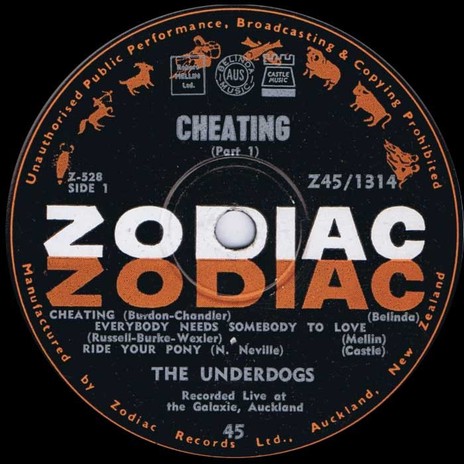
The Underdogs' live single Cheating, fearturing covers of The Animals, Solomon Burke and Lee Dorsey, was recorded at the Galaxie nightclub, then owned by Eldred Stebbing. The medley was split over two sides and was released in September 1967.
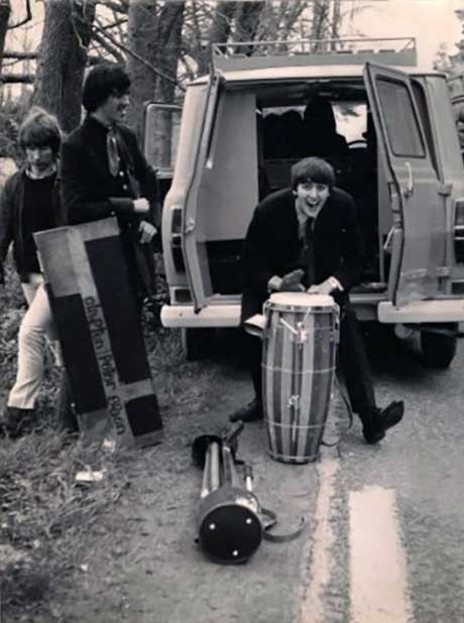
Taken during the filming of The Underdogs’ ‘Sitting in the Rain’ video: NZBC assistant Peter Janes is holding the conga drum, director Chris Bourn is looking round the van. Tony Walton far left; Neil Edwards looks on.
Photo credit:
Leo Shelton
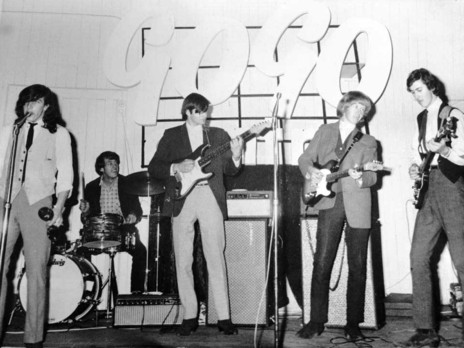
The Underdogs Mk.2 at the Trades Hall, New Plymouth, 1966: Mick Sibley, Ian Thomson, Tony Rawnsley, Harvey Mann and Neil Edwards
Photo credit:
Photo by Bruce Hookham. Dave Hurley collection.
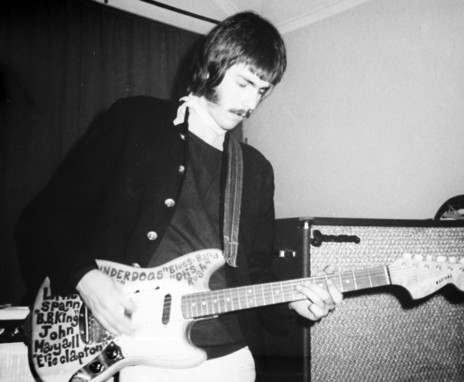
Lou Rawnsley in action with The Underdogs, circa 1967. Rawnsley bought the Fender Mustang when he was too slow to score a Stratocaster or Telecaster from Sydney Eady’s twice-yearly guitar shipment. He hated the bright red colour and stripped it to the wood before adding the names.
Photo credit:
Simon Grigg collection
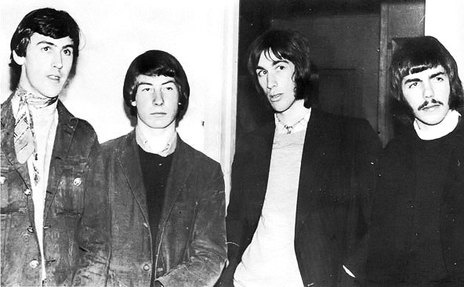
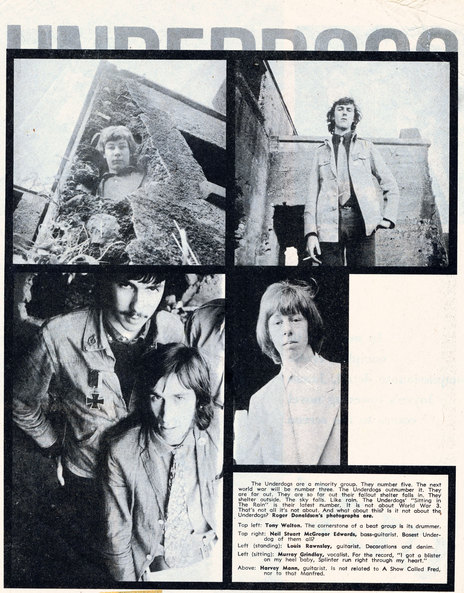
The Underdogs go 'hip' in Playdate, just after the release of 'Sitting in the Rain'.
Photo credit:
Roger Donaldson/Playdate
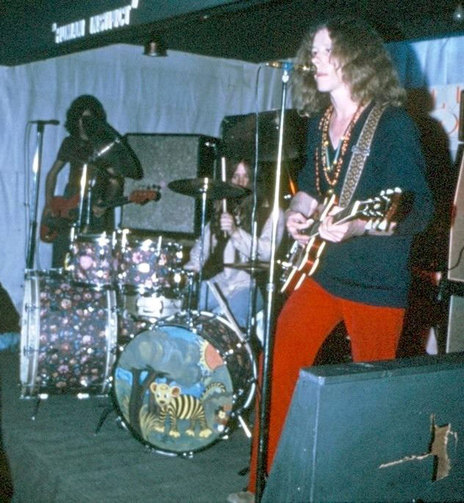
The Underdogs in 1970: Neil Edwards, Glen Absolum, Harvey Mann
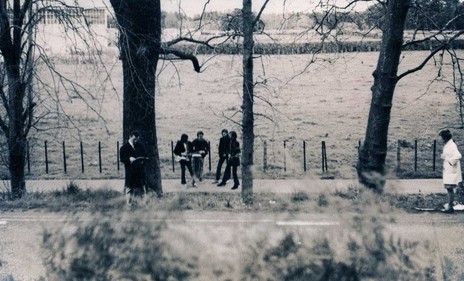
The Underdogs filming the video for 'Sitting In The Rain' outside Palmerston North, 1967. Director Christopher Bourn is seen on the left. (The cameraman was Peter Boden.)
Photo credit:
Christopher Bourn collection
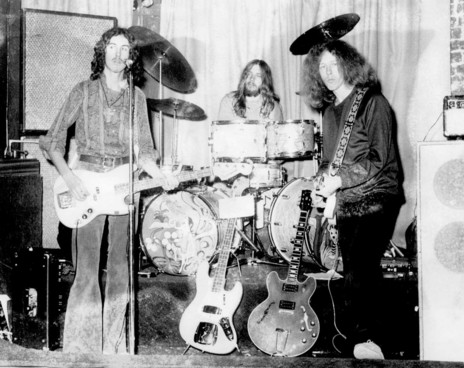
The Underdogs, 1970 (AKA Pig, Mann and Edwards): Neil Edwards, Glen Absolum and Harvey Mann
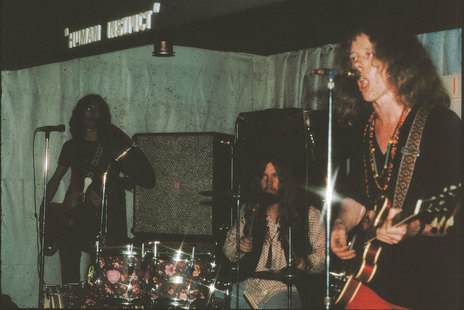
The final Underdogs lineup - Neil Edwards, Glen Absolum, Harvey Mann
Photo credit:
Grant Gillanders Collection
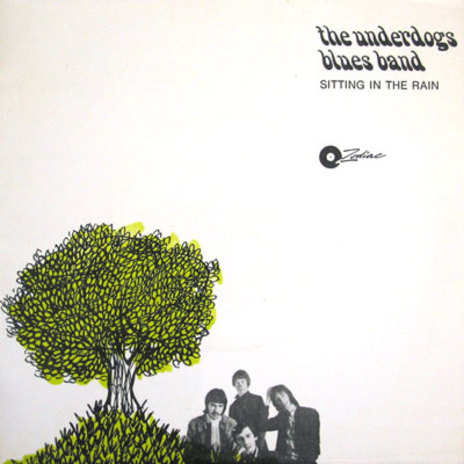
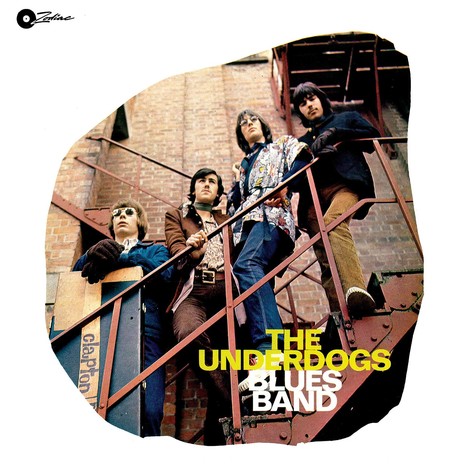
The Underdogs classic debut album, released on Zodiac in early 1968
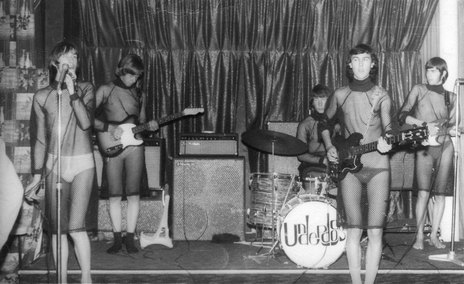
The Underdogs in their underpants at the Galaxie. Left to right, Murray Grindlay, Harvey Mann, Tony Walton, Neil Edwards, Lou Rawnsley.
Photo credit:
Ian Thomson collection
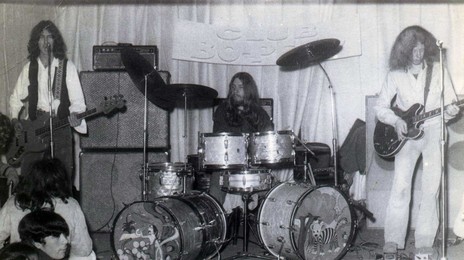
The Underdogs, 1970 (AKA Pig, Mann and Edwards): Neil Edwards, Glen Absolum and Harvey Mann
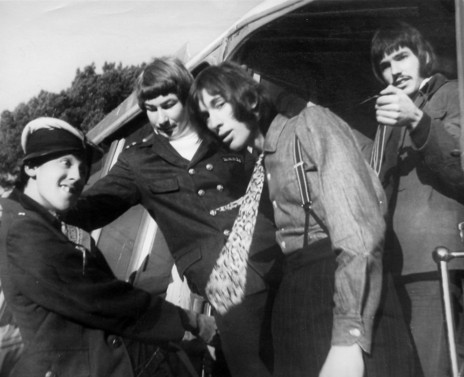
The Underdogs ham it up for the camera, circa 1967. Left to right: Neil Edwards, Tony Walton, Murray Grindlay, Lou Rawnsley.
Photo credit:
Simon Grigg collection
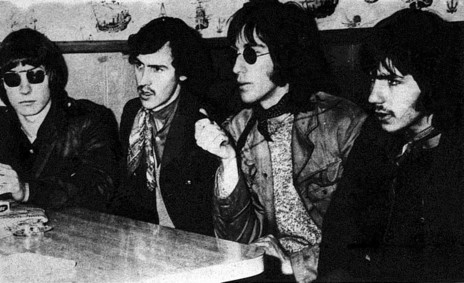
The Underdogs, September 1967: Tony Walton, Neil Edwards, Murray Grindlay and Lou Rawnsley
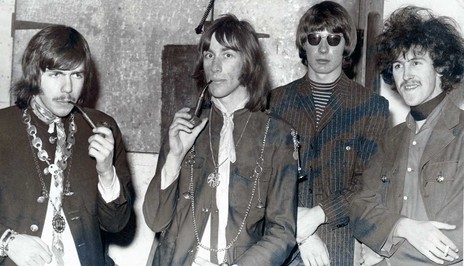
The Underdogs, circa 1967: Lou Rawnsley, Murray Grindlay, Tony Walton and Neil Edwards
Photo credit:
Simon Grigg collection
Sitting In The Rain
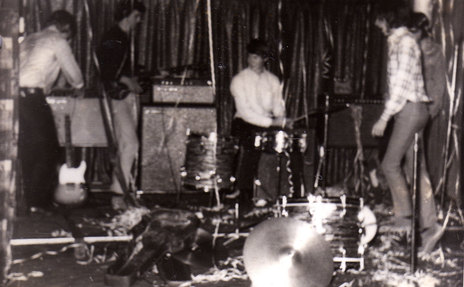
Smashing up the Galaxie
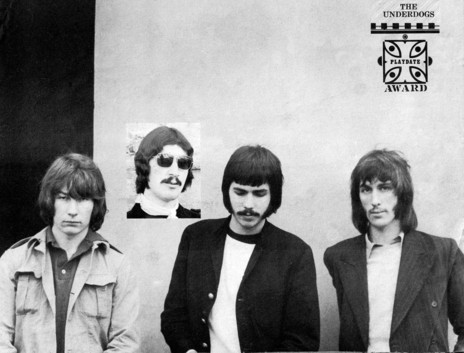
A strangely edited 1967 photo of The Underdogs from Playdate with Tony Walton, George Barris (cropped in), Lou Rawnsley and Murray Grindlay
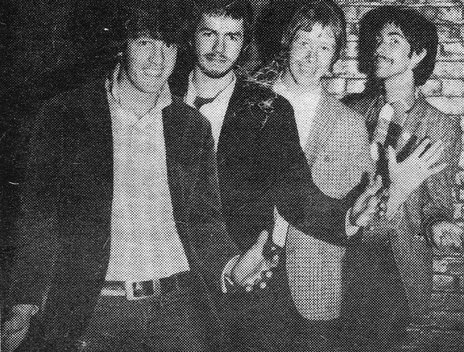
The Underdogs, April 1968. Left to right, Ian Thomson, Lou Rawnsley, Harvey Mann, Murray Grindlay.
Photo credit:
Ian Thomson collection
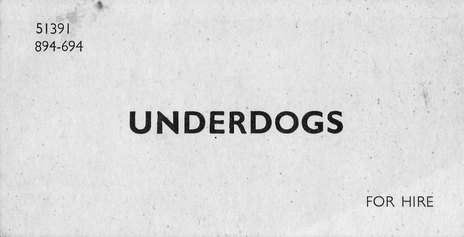
The Underdogs business card, mid-1966
Photo credit:
Ian Thomson collection
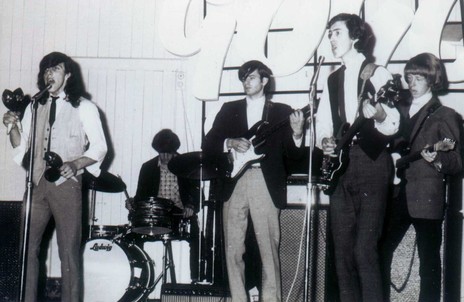
The Underdogs at The Trades Hall, New Plymouth, 1966: Mick Sibley, Ian Thomson, Tony Rawnsley, Neil Edwards and Harvey Mann
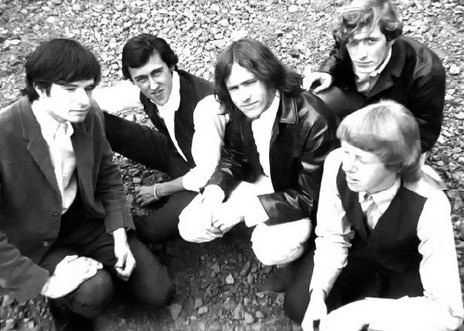
Original Underdogs line-up, 1965. Left to right, Tony Rawnsley, Neil Edwards, Archie Bowie, Barry Winfield, Harvey Mann.
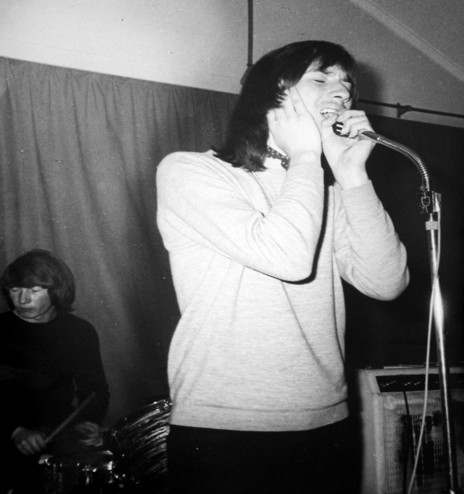
Murray Grindlay fronting The Underdogs, circa 1967. Tony Walton on drums.
Photo credit:
Simon Grigg collection
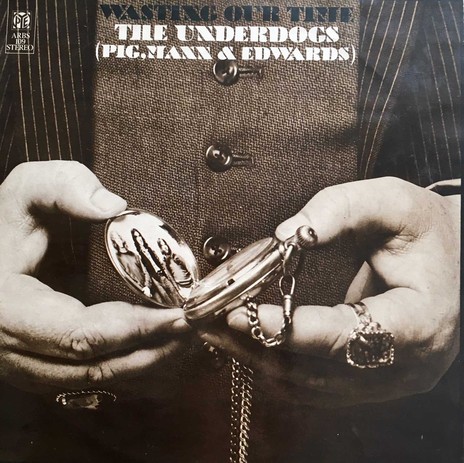
The second Underdogs album, recorded for Pye in 1970 by Neil Edwards, Harvey Mann and Glen Absolum (AKA Pig, Mann & Edwards).
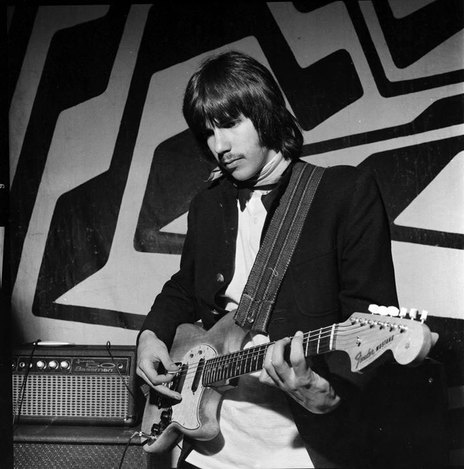
Lou Rawnsley on the 1967 C'mon tour
Photo credit:
Louis Rawnsley collection
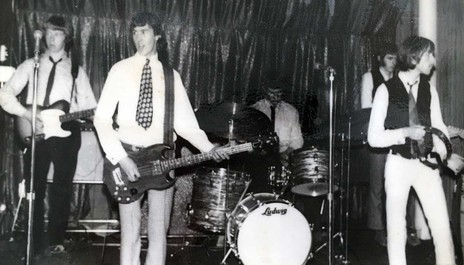
The Underdogs, late 1966: Harvey Mann, Neil Edwards, Tony Walton, Lou Rawnsley, and Murray Grindlay
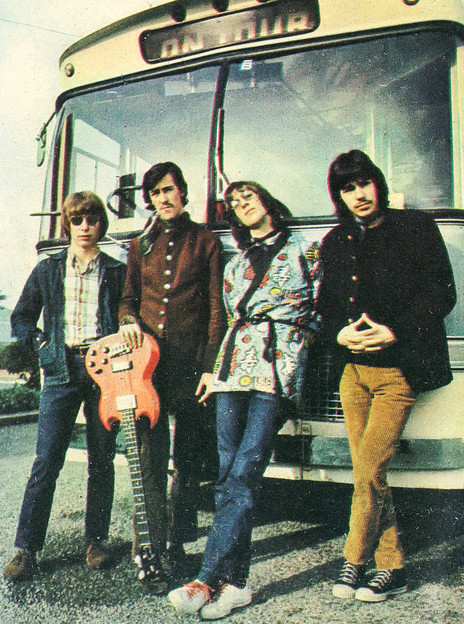
The Underdogs, June 1967: Tony Walton, Neil Edwards, Murray Grindlay and Lou Rawnsley
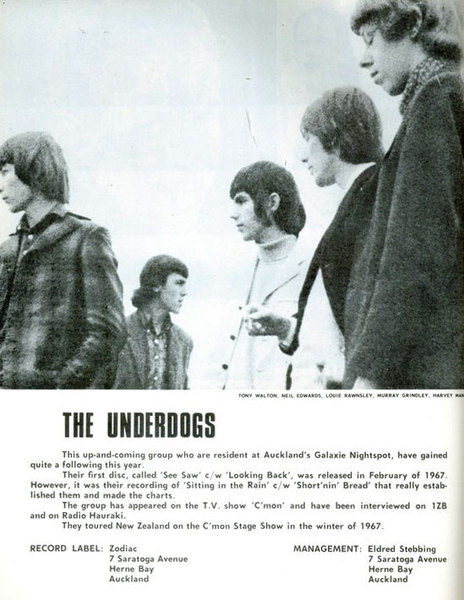
The Underdogs from 1968
Discography
Members:
Lou Rawnsley - rhythm guitar
Harvey Mann - lead guitar
Tony Walton - drums
Archie Bowie - vocals, guitar
Doug Thomas - drums
Glen Absolum - drums
Ian Thomson - drums